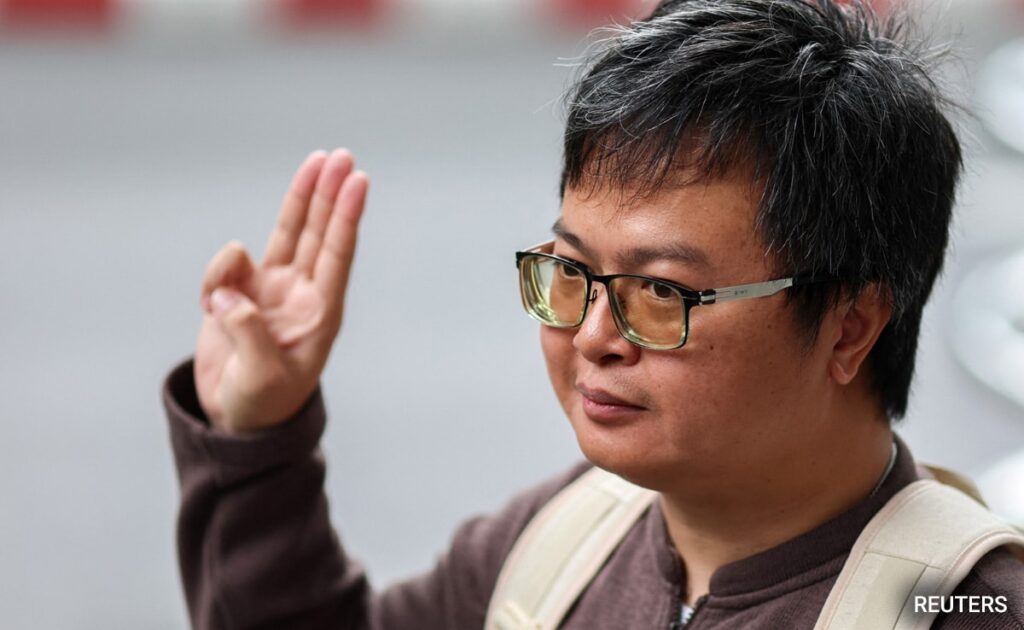He was also fined 20,000 baht ($550) for violating an emergency decree.
Bangkok:
A Thai court on Tuesday jailed one of the leading figures in the kingdom’s youth-led pro-democracy protest movement for four years on royal insult charges.
Anon Numpa was convicted under Thailand’s tough lese-majeste laws over a speech he made in Bangkok in 2020 at the height of the street demonstrations.
Anon was one of a number of protesters who made unprecedented calls for reform to the monarchy and to the legislation that protects King Maha Vajiralongkorn and his close family from criticism.
Bangkok’s Criminal Court ruled Tuesday that Anon’s speech at Democracy Monument amounted to lese-majeste, sentencing him to four years in prison.
He was also fined 20,000 baht ($550) for violating an emergency decree in effect at the time.
“Loss of personal freedom is a sacrifice I’m willing to make,” Anon, 39, told reporters as he entered the court with his partner and their baby, ahead of the sentence.
“We’ve come a long way and we’ve seen lots of changes in the Thai political scene since the movement back in 2020,” he said.
“If I get sentenced to prison today, it might be many years but it will be worth it.”
Following the verdict, his lawyer Krisadang Nutcharas described Anon as an “innocent man” and said they would probably appeal.
“The family and friends are trying to submit bail for a temporary release,” he told reporters outside court.
Anon, a human rights lawyer, is one of more than 150 activists who have been charged under lese-majeste laws, often referred to as “112” after the relevant section of the criminal code.
Ahead of the hearing, dozens of young political activists — many wearing shirts emblazoned with “No 112” — waited to show support.
Andrea Giorgetta of the International Federation for Human Rights told AFP the jail time was “severe”, describing it as “a long prison sentence for exercising your rights”.
“It is certainly a dark day for justice,” he said outside court.
He said the conviction rate under 112 remained close to 100 percent.
“The only question remains how many years you will get, and whether the court will decide if you can be awarded bail.”
(Except for the headline, this story has not been edited by NDTV staff and is published from a syndicated feed.)


